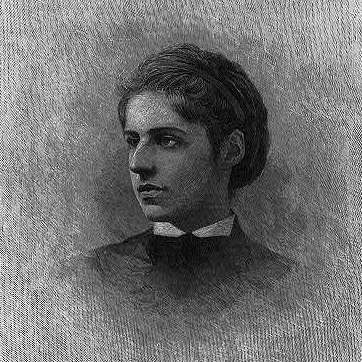Emma Lazarus
Born: 1849
Emma Lazarus was born in New York City to a wealthy family and educated by private tutors. She began writing and translating poetry as a teenager and was publishing translations of German poems by the 1860s. Her father privately printed her first work in 1866 and the next year, her first collection, Poems and Translations (1867), appeared from a commercial press. The book gained the attention of Ralph Waldo Emerson, among others. Over the next decade, Lazarus published a second volume of poetry, Admetus and Other Poems (1871); the novel Alide: An Episode in Goethe’s Life (1874); and a play in verse, The Spagnoletto (1876). Reading George Eliot’s novel Daniel Deronda, with its exploration of Jewish identity, stirred Lazarus to consider her own heritage. In the 1880s, she took up the cause—through both poetry and prose—against the persecution of Jews in Russia, publishing a polemical pamphlet The Century (1882) and Songs of a Semite: The Dance to Death and Other Poems (1882), one of the first literary works to explore the struggles of Jewish Americans. She was commissioned to write a poem to help raise funds for the pedestal of the Statue of Liberty. She initially declined and then wrote a sonnet commemorating the plight of immigrants. Lines from that 1883 sonnet, “The New Colossus,” were engraved on the pedestal of the Statue of Liberty in 1903. Source
